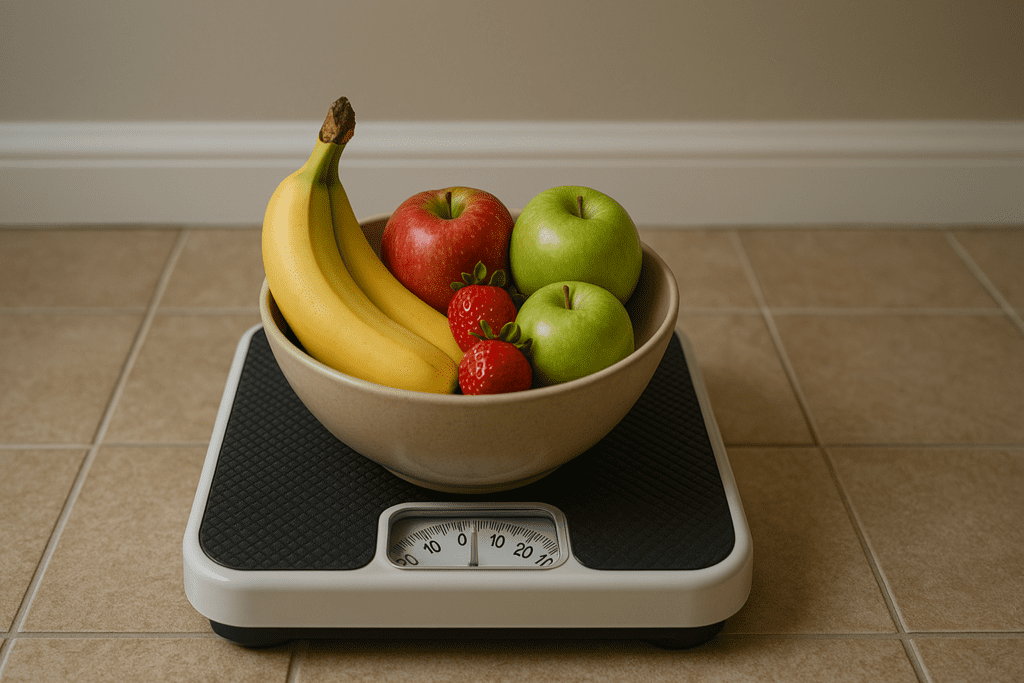Losing weight is a goal shared by millions of individuals, but when time is limited, the question becomes not just how to lose weight, but how to do so quickly, safely, and effectively. Many people find themselves searching for a scientifically sound, doctor-approved 7 day diet plan to lose 10 pounds—hoping to achieve visible results in a short window of time without compromising health. While shedding 10 pounds in a single week is ambitious and not universally appropriate, there are evidence-based strategies that can help optimize fat loss while preserving muscle mass, nutrient intake, and metabolic function.
You may also like: Expert-Backed Weight Loss Tips for a Healthier Lifestyle: What You Need to Know for Long-Term Weight Control and Wellness
This article explores the real science behind short-term weight loss, how to approach a 7-day diet safely, and what your body truly needs to shed fat efficiently. By addressing the medical realities of weight reduction, the importance of caloric balance, nutrient-dense eating, hydration, and metabolism, we’ll provide an informed answer to the common question: how can I lose weight in 7 days without putting my health at risk?
The Science Behind Losing 10 Pounds in a Week: Is It Realistic or Risky?
Understanding the mechanics of short-term weight loss begins with a fundamental truth: to lose one pound of body fat, a person must create a caloric deficit of approximately 3,500 calories. Therefore, to lose 10 pounds in 7 days would require a deficit of 35,000 calories—or 5,000 calories per day. For most people, this is neither realistic nor safe. However, it’s important to differentiate between fat loss and water weight. In the first few days of a reduced-calorie, low-carbohydrate diet, the body sheds glycogen—a stored form of carbohydrate that binds to water. This results in rapid fluid loss that can account for 3 to 5 pounds within the initial 72 hours.
That said, losing 10 pounds of pure fat in a week is unlikely, but a combination of fat loss and water loss totaling close to that number may be possible under specific, carefully controlled conditions. A doctor-approved 7 day diet plan to lose 10 pounds prioritizes safety by incorporating whole foods, portion control, hydration, and light physical activity. The emphasis is on resetting dietary habits, reducing bloat and inflammation, and jumpstarting longer-term fat reduction in a healthy and sustainable way.
How Can I Lose Weight in 7 Days Without Sacrificing Nutrition or Health?
To lose weight rapidly without harming your health, every calorie you consume must offer maximum nutritional value. Empty calories from sugar, refined grains, or processed snacks not only derail progress but also leave the body deprived of essential vitamins, minerals, and fiber. A 7 day diet plan to lose 10 pounds should center on lean proteins, high-fiber vegetables, low-glycemic fruits, and healthy fats. These foods provide satiety, stabilize blood sugar, and support digestion and hormonal balance.
Moreover, portion awareness is crucial. Even nutrient-dense foods can contribute to weight gain if consumed in excess. The strategy is not starvation, but rather precision. By calculating a moderate calorie deficit tailored to your basal metabolic rate and activity level, you can encourage fat burning without triggering muscle breakdown or fatigue. Adding thermogenic ingredients such as green tea, chili peppers, or ginger may provide a small metabolic boost, but the cornerstone of effective weight loss is dietary consistency and caloric control—not magic ingredients.

What a Doctor-Approved 7 Day Diet Plan Actually Looks Like
Unlike fad diets that rely on extreme deprivation, a doctor-approved 7 day plan is structured, balanced, and based on proven nutritional principles. It typically includes three main meals and two light snacks per day, totaling 1,200 to 1,500 calories depending on gender, age, and physical activity. Breakfast may consist of protein-rich options such as eggs, Greek yogurt, or a protein smoothie with leafy greens. Lunch focuses on lean proteins like grilled chicken or tofu paired with complex carbohydrates and plenty of fiber-rich vegetables. Dinner should be the lightest meal of the day, emphasizing vegetables, legumes, or fish to support overnight digestion.
Snacks are critical in preventing blood sugar crashes and reducing the urge to binge. Think of apple slices with almond butter, a boiled egg with carrot sticks, or a small serving of cottage cheese with berries. Hydration is equally essential. Drinking water before meals has been shown to reduce overall caloric intake, and adequate fluid balance supports kidney function, reduces bloating, and facilitates fat metabolism.
Importantly, this day diet should avoid ultra-restrictive protocols like juice cleanses or prolonged fasting unless specifically supervised by a healthcare provider. The goal is not just to lose weight in 7 days but to preserve metabolic flexibility, muscle mass, and micronutrient status along the way.
The Role of Physical Activity in Enhancing 7-Day Weight Loss
No day diet plan is complete without physical movement. While dietary changes carry the greatest weight loss potential, exercise serves as a powerful complement, enhancing insulin sensitivity, encouraging fat oxidation, and improving overall energy balance. During a 7-day plan, high-intensity workouts may not be necessary or even advisable, especially if caloric intake is reduced. Instead, focus on low- to moderate-intensity cardio such as brisk walking, swimming, or cycling for 30 to 60 minutes per day. This not only promotes fat burning but also supports cardiovascular and mental health.
Resistance training, even at a basic level, helps prevent muscle loss and can elevate your resting metabolic rate. Incorporating full-body strength exercises using bodyweight or resistance bands three times during the week can help preserve lean mass and reinforce healthy movement patterns. While many ask, “how can I lose weight in 7 days without exercise,” it’s important to remember that gentle movement accelerates progress and enhances well-being without the need for intense regimens.
Managing Water Weight, Bloating, and Sodium Intake
Much of the rapid weight loss seen in the first few days of a new diet comes from fluid reduction rather than true fat loss. This is particularly true when carbohydrate intake is lowered, as glycogen stored in muscles and the liver binds to water. Additionally, sodium plays a major role in water retention. By reducing processed foods and choosing whole, naturally low-sodium alternatives, the body is able to release excess fluid, leading to a lighter and less bloated feeling.
In a 7 day diet plan to lose 10 pounds, it’s not uncommon for individuals to notice that their face looks slimmer, their waistbands feel looser, and they feel less puffy overall. While these changes are motivating, it’s essential to understand that they reflect short-term water changes more than permanent fat loss. To maintain the results beyond seven days, a gradual reintroduction of carbohydrates and salt should be done cautiously, with an emphasis on whole food sources and ongoing caloric awareness.
Common Pitfalls to Avoid During a Rapid Weight Loss Plan
Attempting to lose a significant amount of weight quickly can tempt people into adopting unsustainable or unsafe habits. Skipping meals, over-restricting calories, cutting out entire food groups, or using diuretics or laxatives can all lead to electrolyte imbalances, nutrient deficiencies, and rebound weight gain. Furthermore, crash dieting may increase cortisol levels, the body’s primary stress hormone, which can impair fat loss and compromise immune function.
To avoid these setbacks, individuals must focus on progress rather than perfection. A well-balanced day diet plan prioritizes nourishment over punishment, making room for rest, hydration, and recovery. Consulting with a registered dietitian or physician can provide personalized insight, especially for individuals with preexisting medical conditions, metabolic disorders, or significant weight loss goals. Emotional support and accountability—whether from a professional or a peer—can also make a profound difference in adherence and mindset throughout the week.
How Gut Health and Digestion Impact Short-Term Weight Loss
Though often overlooked, digestive health plays a pivotal role in short-term and long-term weight loss. A sluggish digestive system can lead to bloating, constipation, and inefficient nutrient absorption—all of which undermine the effectiveness of a 7 day diet plan to lose 10 pounds. Foods that support gut health include fermented vegetables, plain yogurt, kefir, kimchi, and fiber-rich plants like flaxseeds and leafy greens. These foods populate the gut with beneficial bacteria and promote regularity, which can enhance the perception of lightness and contribute to lower scale weight.
Avoiding irritants such as artificial sweeteners, processed fats, and alcohol can reduce inflammation in the gut lining and improve overall digestive comfort. Hydration, again, is essential here, as water supports the movement of fiber through the intestines. Supporting digestion with mindful eating—chewing slowly, eating without distraction, and listening to hunger and fullness cues—can improve hormonal regulation and lead to better food choices throughout the day.
The Psychological Component: Motivation, Mindset, and Self-Talk
Weight loss, particularly on a tight timeline, is as much a mental endeavor as it is a physical one. The question “how can I lose weight in 7 days” is not just about strategy—it’s about belief, discipline, and resilience. A successful short-term weight loss plan requires mental clarity, positive reinforcement, and realistic expectations. Rather than fixating on the number on the scale, it’s helpful to track energy levels, sleep quality, confidence, and how clothing fits.
Mindful techniques such as journaling meals and feelings, setting daily goals, practicing gratitude, and visualizing success can strengthen motivation and provide a sense of purpose. It’s important to anticipate obstacles—whether it’s social pressure, cravings, or fatigue—and have a plan in place to handle them. Reframing challenges as opportunities to learn and grow rather than as failures reinforces long-term success and fosters a healthier relationship with food and body image.
Post-Plan Maintenance: What Happens After the 7 Days Are Over
One of the most important aspects of a doctor-approved 7 day diet plan to lose 10 pounds is what happens once the week ends. Without a clear transition strategy, rapid weight loss is often followed by rapid weight regain. This is due to a combination of returning water weight, increased appetite, and reduced metabolic rate from caloric restriction. To sustain results, gradual reintroduction of calories and macronutrients is essential.
Individuals should continue prioritizing whole foods, lean proteins, healthy fats, and high-fiber carbohydrates while increasing caloric intake by 100 to 200 calories per day until a maintenance level is reached. Continued exercise, regular sleep patterns, and stress management all play key roles in weight stability. Most importantly, the habits built during the 7-day plan—such as meal preparation, water intake, and mindful eating—should become foundational elements of a long-term healthy lifestyle rather than temporary measures.
Safety Considerations and When to Consult a Professional
Rapid weight loss is not appropriate for everyone. Pregnant or breastfeeding women, individuals with eating disorders, people with uncontrolled diabetes or heart conditions, and those on certain medications should not attempt a 7 day diet plan to lose 10 pounds without medical supervision. Signs that a plan may be too aggressive include dizziness, persistent fatigue, irritability, hair loss, and disrupted menstruation. If any of these occur, it’s essential to pause the plan and seek guidance from a healthcare provider.
Working with a registered dietitian or certified health coach can help ensure that nutrient needs are being met and that the plan is tailored to your specific metabolism and lifestyle. They can also help you distinguish between healthy and harmful patterns, build in flexibility, and celebrate non-scale victories along the way.

Standalone FAQ: Doctor-Approved 7 Day Diet Plan to Lose 10 Pounds
1. Is it medically safe to follow a 7 day diet plan to lose 10 pounds more than once a month?
While a 7 day diet plan to lose 10 pounds can be effective when approached responsibly, repeating such a plan too frequently may lead to nutritional deficiencies or metabolic disruption. The body requires consistent access to essential macronutrients and micronutrients to function properly, and prolonged cycles of caloric restriction can reduce thyroid function, alter hunger hormones like leptin and ghrelin, and lead to muscle loss. Medical professionals generally recommend spacing out any intensive short-term diet plans and alternating them with maintenance phases that prioritize nourishment and recovery. If you’re considering repeating the process, it’s essential to monitor your blood pressure, hydration status, and electrolyte levels. A dietitian can help determine whether cycling through such a plan supports your long-term health or puts unnecessary stress on your metabolism.
2. How can I lose weight in 7 days if I’m over 50 or have a slower metabolism?
Metabolism does tend to slow with age due to muscle loss, hormonal changes, and reduced physical activity, but this doesn’t mean results are impossible. To follow a 7 day diet plan to lose 10 pounds when you’re over 50, consider strategies tailored to your biology—such as increasing protein intake to preserve muscle mass, emphasizing anti-inflammatory foods like fatty fish and leafy greens, and incorporating resistance training even if it’s light. Older adults often benefit from lower glycemic load meals to manage blood sugar and insulin sensitivity, which can enhance fat burning. You should also get your thyroid levels and vitamin D status checked, as deficiencies in either can make fat loss more difficult. Prioritizing sleep and reducing stress through mindfulness can also improve weight loss results in this age group, even within a limited 7-day window.
3. Can emotional stress affect how much weight I lose on a 7 day plan?
Absolutely—emotional stress can interfere significantly with weight loss, particularly during an intensive plan like a 7 day diet to lose 10 pounds. Elevated cortisol levels, triggered by stress, not only promote fat storage (especially around the abdomen) but can also increase cravings for sugar and carbohydrates, making dietary adherence more difficult. Mental fatigue may reduce willpower and decision-making capacity, leading to late-night snacking or deviation from the plan. Incorporating relaxation techniques—such as deep breathing, journaling, or yoga—can enhance your ability to follow the day diet without emotional burnout. Setting realistic expectations and being kind to yourself throughout the process can help ensure both physical and psychological success during the 7-day journey.
4. Are there any supplements that support a 7 day diet plan to lose 10 pounds more effectively?
Some supplements may help enhance the results of a 7 day diet plan to lose 10 pounds, but none should replace foundational dietary changes. Fiber supplements like psyllium husk can aid digestion and promote satiety, especially when transitioning to a lower-calorie intake. Magnesium citrate can help with regular bowel movements, which is useful for individuals prone to constipation during dietary changes. Green tea extract and caffeine have been studied for their thermogenic properties, but the effect size is typically small. Always speak with a healthcare provider before adding any supplement, particularly if you’re on medications or managing chronic conditions. Supplements should support, not substitute, the nutrient-dense foods that form the backbone of any effective day diet.
5. How do social events or travel affect my ability to follow a day diet?
Social settings and travel often present dietary challenges, especially during a structured 7 day diet plan to lose 10 pounds. However, preparation is key. When dining out, opt for grilled proteins and steamed vegetables while avoiding hidden sources of sodium and sugar in sauces or dressings. If traveling, pack portioned snacks like almonds, protein bars with limited ingredients, or dehydrated vegetable chips. Staying hydrated and walking regularly during flights or car rides can help offset some of the water retention and inactivity that often come with travel. While it may not be possible to follow your day diet with perfect precision in these settings, maintaining the underlying principles—portion control, whole food choices, and hydration—can preserve progress and reduce setbacks.
6. How can I lose weight in 7 days without experiencing rebound hunger or cravings?
Managing hunger during an intensive 7 day diet plan to lose 10 pounds requires strategic food choices and behavioral tools. Start each meal with high-fiber vegetables or a protein-rich appetizer like a boiled egg or a cup of bone broth to blunt hunger hormones. Eating slowly and practicing mindful eating can enhance satiety signals, helping you feel full with fewer calories. It’s also helpful to avoid extremes—such as cutting all carbs or skipping meals—which can disrupt blood sugar and lead to intense cravings. Drinking herbal teas between meals or incorporating fermented foods may improve gut hormone signaling and reduce perceived hunger. Over time, learning your body’s true hunger cues versus emotional or habitual ones is essential for both short- and long-term dietary success.
7. What role does sleep play in a 7 day diet plan to lose 10 pounds?
Sleep quality and duration are critical yet often underestimated factors in successful weight loss. Inadequate sleep—typically defined as fewer than six hours per night—has been shown to impair glucose metabolism, reduce insulin sensitivity, and increase hunger hormones like ghrelin, making it more difficult to stick to a day diet. Moreover, sleep deprivation reduces your body’s ability to recover from workouts and can lead to poor decision-making, particularly around food choices. Creating a calming nighttime routine, limiting screen exposure, and establishing consistent sleep and wake times can enhance both fat burning and appetite regulation. If your goal is to lose weight in 7 days, prioritizing rest is as vital as counting calories or macronutrients.
8. How can I lose weight in 7 days if I have a sedentary job or limited time to exercise?
A sedentary lifestyle doesn’t mean you can’t benefit from a well-executed 7 day diet plan to lose 10 pounds. In fact, diet has a greater impact on short-term weight changes than exercise alone. However, you can still improve your daily calorie burn by incorporating “incidental activity” throughout your day—such as walking while on phone calls, using a standing desk, or taking brief movement breaks every hour. Bodyweight exercises like air squats or desk push-ups can be completed in minutes without equipment. Meanwhile, dietary precision becomes even more important in this context, as you’ll be relying primarily on nutritional discipline rather than movement to create a calorie deficit. Using a step counter or wearable device can also increase awareness and encourage micro-activities that add up over the course of the week.
9. Are there long-term psychological risks to rapid weight loss strategies?
While a 7 day diet plan to lose 10 pounds can provide motivational momentum, there are psychological risks if the process is not approached mindfully. One common pitfall is the development of an all-or-nothing mindset, where a single deviation from the plan is viewed as failure. This can erode self-esteem and lead to binge-restrict cycles. Others may become overly focused on the scale, ignoring non-scale victories such as improved energy or reduced inflammation. To safeguard mental health, it’s important to define success using multiple metrics and to remember that progress is rarely linear. Engaging with a therapist or health coach during or after a rapid weight loss phase can help integrate the experience into a sustainable, positive relationship with food and body image.
10. What innovations or future trends may shape the next generation of 7 day diet plans?
The future of short-term weight loss strategies is likely to be more personalized and data-driven. Advances in continuous glucose monitors (CGMs), wearable metabolic analyzers, and microbiome profiling are allowing individuals to tailor their diet plans more precisely based on their unique physiology. This means that future versions of the day diet may take into account how your body responds to different macronutrient ratios in real time. Additionally, emerging research into time-restricted eating and circadian nutrition suggests that not just what you eat, but when you eat, may significantly influence short-term fat loss. AI-powered coaching apps and remote monitoring platforms may also help increase accountability, provide adaptive meal recommendations, and reduce the guesswork in following a 7 day diet plan to lose 10 pounds effectively and safely.

Final Thoughts: Is It Really Possible to Lose Weight in 7 Days Safely and Effectively?
The truth is, the question “how can I lose weight in 7 days” has more than one answer. For some, it’s about jumpstarting a longer journey. For others, it’s about meeting a deadline—whether it’s a special event, a health goal, or a personal challenge. A carefully designed, doctor-approved 7 day diet plan to lose 10 pounds can produce meaningful results when approached with discipline, knowledge, and a commitment to overall wellness. While not everyone will lose 10 pounds of fat in a single week, the strategies employed can significantly reduce bloating, improve metabolic markers, and increase motivation to continue a healthier path forward.
The real takeaway is this: sustainable change begins with intention and education. A 7-day plan can be a catalyst—not a cure-all—for healthier habits that last a lifetime. With the right support, thoughtful preparation, and a mindset grounded in health rather than just numbers, safe and effective weight loss in a short time frame is not only possible—it can be the foundation for long-term transformation.
rapid weight loss strategies, calorie deficit diet, safe weight loss tips, healthy meal planning, fat-burning foods, metabolism boosting meals, low carb high protein diet, portion control strategies, doctor recommended diets, short term weight loss, clean eating for weight loss, anti-bloating diet tips, meal prep for weight loss, body composition improvement, reducing water retention, healthy fat loss, weight loss motivation tips, mindful eating habits, structured diet plans, sustainable nutrition programs
Further Reading:
7-Day Diet Meal Plan to Lose Weight: 1,200 Calories
7-Day Weight Loss Meal Plan & Recipe Prep
Disclaimer
The information contained in this article is provided for general informational purposes only and is not intended to serve as medical, legal, or professional advice. While MedNewsPedia strives to present accurate, up-to-date, and reliable content, no warranty or guarantee, expressed or implied, is made regarding the completeness, accuracy, or adequacy of the information provided. Readers are strongly advised to seek the guidance of a qualified healthcare provider or other relevant professionals before acting on any information contained in this article. MedNewsPedia, its authors, editors, and contributors expressly disclaim any liability for any damages, losses, or consequences arising directly or indirectly from the use, interpretation, or reliance on any information presented herein. The views and opinions expressed in this article are those of the author(s) and do not necessarily reflect the official policies or positions of MedNewsPedia.


